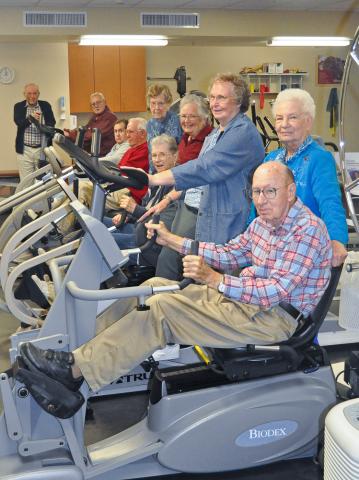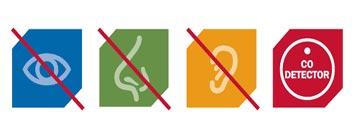Health And Fitness
Honor Flight: A Veteran\'s story of recovery with the help of VGH Rehab Services
 By: Stacey Hodges, Director Rehab Services
From 1951-1954, a young Corporal in the Marine Corps, by the name of John Pohlmann, was serving his country in the Korean War. He was stationed in man...
By: Stacey Hodges, Director Rehab Services
From 1951-1954, a young Corporal in the Marine Corps, by the name of John Pohlmann, was serving his country in the Korean War. He was stationed in man... Arthritis Awareness and Action
Arthritis does not have to limit your activities at any age. If you are one of the 53 million US adults living with arthritis, there are many simple things you can do to reduce symptoms and live w...
Tree of Lights - Gallery #2
 VISIT VGH AND BID TODAY -- Celebrating the 21st year, the annual Tree of Lights fundraising campaign helps Virginia Gay Hospital and Clinics, a not-for-profit organization purchase crucial medical...
VISIT VGH AND BID TODAY -- Celebrating the 21st year, the annual Tree of Lights fundraising campaign helps Virginia Gay Hospital and Clinics, a not-for-profit organization purchase crucial medical... Tree of Lights – Gallery #1
 Celebrating the 21st year, the annual Tree of Lights fundraising campaign helps Virginia Gay Hospital and Clinics, a not-for-profit organization purchase crucial medical equipment to better serve ...
Celebrating the 21st year, the annual Tree of Lights fundraising campaign helps Virginia Gay Hospital and Clinics, a not-for-profit organization purchase crucial medical equipment to better serve ... Blood Drive - Friday, Nov. 8th
REMINDER: Community Blood Drive is tomorrow, November 8th at Virginia Gay Hospital!
LifeServe Blood Center in cooperation with Virginia Gay Hospital is calling on our community to step forward...
National Home Care & Hospice Month
 Val J. Halamandaris, President of the National Association for Home Care & Hospice (NAHC) called on all Americans to commemorate National Home Care & Hospice Month throughout November. He a...
Val J. Halamandaris, President of the National Association for Home Care & Hospice (NAHC) called on all Americans to commemorate National Home Care & Hospice Month throughout November. He a... Prevent Carbon Monoxide (CO) Poisoning
 When you set your clocks back one hour beginning Sunday, November 3, 2013, remember to change the batteries in your CO detector.
Daylight Saving Time ends Sunday, November 3, 2013. As you prep...
When you set your clocks back one hour beginning Sunday, November 3, 2013, remember to change the batteries in your CO detector.
Daylight Saving Time ends Sunday, November 3, 2013. As you prep... SIDS - Sudden Infant Death Syndrome
October is SIDS Awareness Month. Learn more about the problem and the risk factors and take action to reduce the risk. Start by always placing babies on their backs to sleep.
Understanding the...
Halloween Safety Tips
Autumn holidays like Halloween and Harvest Day are fun times for children of all ages, who can dress up in costumes, enjoy parties, enjoy fall fruits and vegetables, and eat yummy treats. These ce...
Community Blood Drive (Nov. 8th)
There are not many hour-long activities you can do that have the potential to save a life, but giving blood on November 8th certainly can.
LifeServe Blood Center in cooperation with Virginia G...